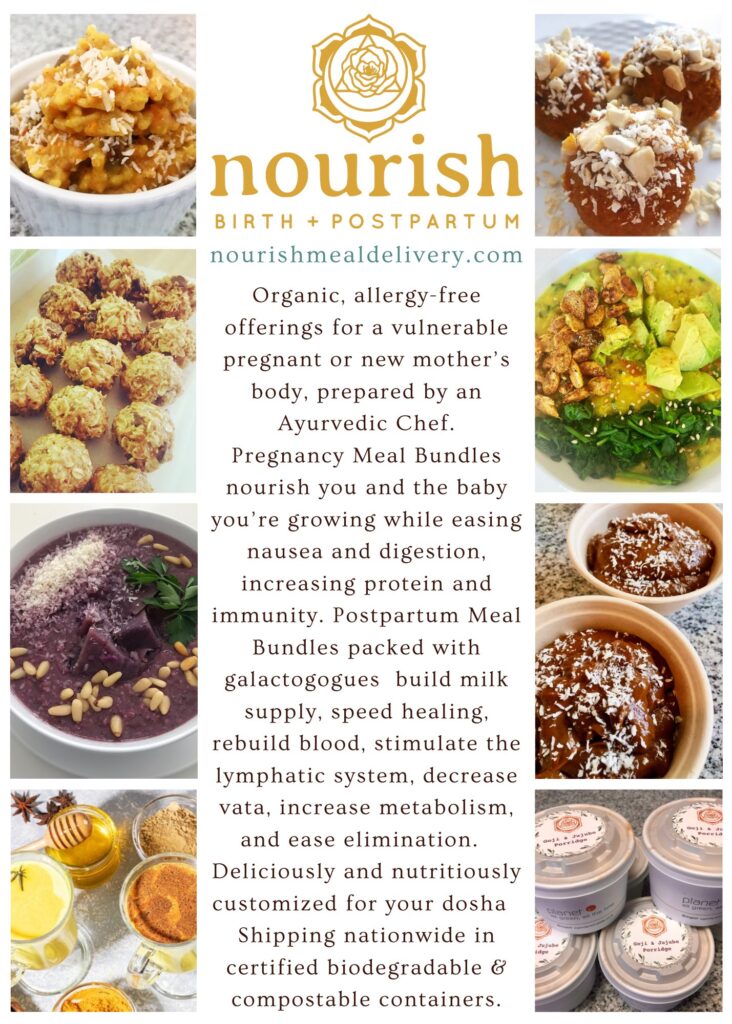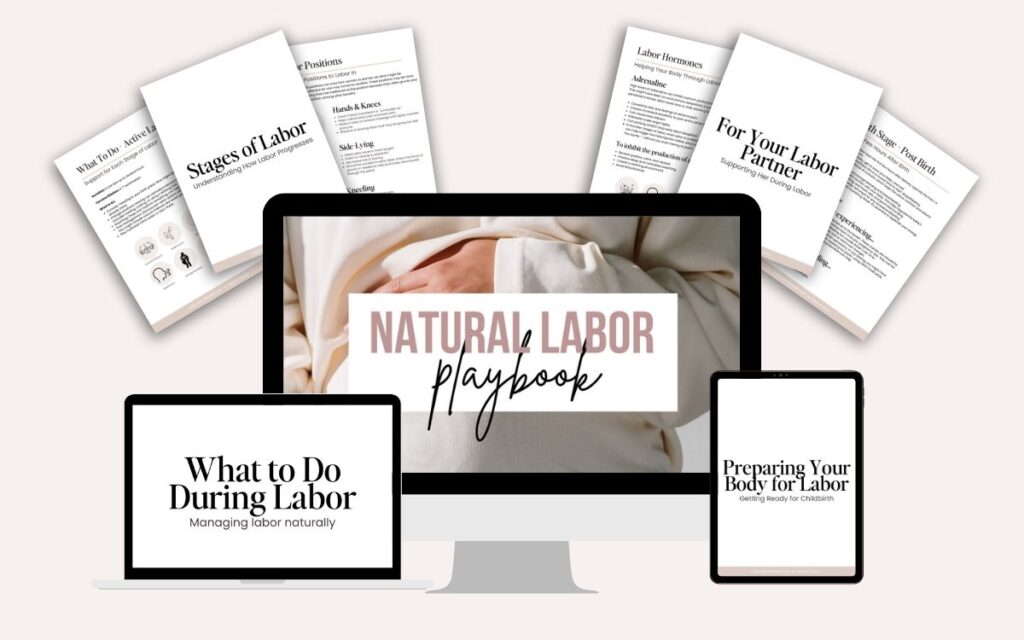Congratulations, mama. Your world is undoubtedly filled with excitement and love right now as you are about to bring home a new baby. But between the last-minute baby prepping and all of the excitement that goes into bringing home a new baby, it’s essential to remember to care of yourself, especially when it comes to maintaining a healthy diet. And, well, eating at all.
Your postpartum phase can be a whirlwind of emotions and changes, but nourishing your body is crucial to support your well-being. While it’s natural for your focus to be on your little one, neglecting your own nutritional needs can leave you feeling drained and lacking the energy you need for this incredible journey.
Eating well during postpartum helps with recovery, reduces the chances of the baby reacting to what’s in your breast milk (i.e. fast food or highly processed meals/snacks), and provides essential nutrients to support you while breastfeeding.
But, it’s not all that easy to do. So this article covers ten practical and easy tips for eating healthy after having a new baby, ensuring that you’re fueling your body (and your family’s!) for the exciting adventures of motherhood.
From simple tweaks to your daily meals to time-saving tips for meal planning, these suggestions will help you make healthy choices without overwhelming your already busy schedule. By incorporating these simple practices into your routine, you’ll nourish your body and mind, setting a positive example of self-care for your growing family.
So, let’s dive into the ten essential tips that will guide you toward optimal postpartum nutrition and overall wellness. Ditch the takeout menu, and toss the Annie’s mac & cheese, and let’s set you up for postpartum nutrition success.
Here are simple tips to help you eat well during the fourth trimester.
1) Set up a meal train
If you have friends and family locally, ask them to help by bringing a meal. It doesn’t even have to be home-cooked! You can set up a meal train online or ask a friend to coordinate it for you.
One of the best things my cousin did for us after we had our first baby was come by and bring lots of food with her. It was so thoughtful, and I just remember being so grateful at the time.
So meal trains are a great way to go! Here are the three sites I recommend for setting up a meal train:
2) Order grocery delivery
Running out to the grocery store can be a big task with a newborn. It feels like it takes FOREVER to get out of the house with a newborn.
So, rest up at home and just order grocery delivery from Instacart or your local grocery delivery. Walmart offers grocery pickup in some areas, too.
And if you grocery shop with your baby, connect the car seat to the stroller or use your baby carrier. You can even place the groceries at the bottom of your stroller in the storage bin. But never place the car seat on top of the shopping cart; babywearing is also a good idea while grocery shopping.
3) Download your favorite food delivery apps
Find some restaurants you can conveniently order from and download the apps. Figure out who delivers to your neighborhood and download apps like GrubHub, Eat24, and Postmates. You’ll probably rely on these more often than you expect to. Make it easier by doing some research ahead of time.
Then, once you’ve downloaded these apps, organize them into a “takeout” folder on your phone.
4) Make freezer meals
Freezer meals are the way to go!
A couple of weeks before your due date, simply premake some meals and pop them into the freezer. I found this so useful because it saved me the mental energy of planning a meal, collecting the ingredients, mixing them together, and cleaning up.
Definitely make some freezer meals before your due date! I have two guides for you: our general list of 30+ freezer meals and our list of dairy-free freezer meals. And dairy-free is always a good way to go because a lot of babies can be sensitive to dairy.
5) Try a meal delivery service
Meal delivery services can be really useful during the busy phases of your life, like postpartum. A meal delivery service will send you either premade meals or all of the necessary ingredients you need to make a meal at home.
I really like and recommend Nourish Birth + Postpartum for meal delivery. Their meals are planned by an Ayurvedic chef, and are organic and allergy-friendly.

6) Adjust your expectations
If you’re used to making home-cooked meals three times a day, you may have to lower your expectations temporarily. It’s completely OK to pick up a rotisserie chicken and call it dinner for two days.
When my oldest was born, my husband was on dinner duty every day and many times meant that he was responsible for picking up dinner from Chipotle or a rotisserie chicken from Whole Foods.
As long as you’re mostly eating well and doing your best to nourish your body, eating simpler on some days is an OK part of the game plan.
7) Stock up on your freezer and pantry basics before you’re due
Fill your pantry and freezer with your go-to basics so that you’ll never run out. Some essential items include:
- Grains such as organic white basmati rice, quinoa, cereals, all-purpose flour, and gluten-free pasta
- Freezer staples such as frozen vegetables, organic breakfast sausage patties, and smoothie mixes
- Cooking basics such as oils, fats, vinegar
- Snacks and quick meals such as soups, nuts, nut butter, and protein powders
Our guide to stocking up your home before your due date has a complete pantry checklist.
8) Simplify doing the dishes
If the dishes are an obstacle in eating healthy meals at home, it’s ok to use paper plates for a while. There’s plenty of time for doing the dishes and scrubbing the sink clean — later. During the newborn stage, dishes may end up piling up and causing you and your hubby unneeded stress.
You’ll not only be recovering from birth but also tired and adjusting to life with a new baby, so simplify and use disposable plates or find another system; for example, can you hire a mother’s helper a couple of hours a day to tidy up the house or can your partner do the dishes every night while you unload them in the morning?
Find a simpler system that works for you. If you decide to use paper plates, go with a non-bleached option.
9) Focus on the right snacks and healing foods
During postpartum, your body needs nourishing foods like broths, vegetables, and clean proteins. Try to prioritize these healing foods whenever possible and build them into your postpartum diet.
If you’re struggling with what to eat during postpartum, you might want to look into a food delivery service such as Nourish Postpartum Meals. They make healthy, healing foods that are organic and allergy-friendly, and they deliver nationwide. New mamas love them!
And, if you are breastfeeding, you’ll need about 500 extra calories per day. This additional caloric need can cause breastfeeding mamas to feel like they’re always hungry and hunting for food.
Avoid highly processed foods and snacks on fruits, vegetables, and nuts and high-calorie snacks such as nut butter, yogurt, lactation bites, and protein shakes. Keep your pantry stocked and stock up your lactation station with protein bars and other handy snacks.
10) Batch cook whenever possible
When you do cook, double your recipe so that you make enough to last 2-3 days at a time. I love to double recipes all the time to skip a day of cooking. Especially with a new baby, you’ll have less opportunity to cook a full meal.
11) Have the right tools in your kitchen
A cook is only as good as her tools, and you’ll want the right tools to cook efficiently. Make sure your kitchen is stocked with the right tools and equipment. (Need a few items? Check out my list of non-toxic kitchen favorites on my Amazon shop.)
For example, my Instant Pot gets a lot of use, and it’s a great tool to have around the kitchen for postpartum. It has replaced my slow cooker, not only because I didn’t have the patience or planning to use my slow cooker properly, but because the interior is stainless steel (while the slow cooker has a ceramic interior).
My Instant Pot makes soups in 20 minutes, cooks beans in 20 minutes, chicken in 10 minutes, and does so much more and faster than any other cooking appliance I’ve ever had. I highly recommend it!
Another good item to have is an air fryer, and you’ll also want to make sure you have kitchen basics that work well.
Eating Well During Postpartum
As you can see, you may have to make some adjustments and plan ahead a bit, mama. But you can make sure you’re eating well and practicing self-care after your baby arrives. Those early days might feel like a blur, and I encourage you to rest and lay in bed as much as possible.
Hopefully these tips and hacks for eating better after your new baby arrives help you nourish your body and support your postpartum recovery!
You might also enjoy:
- 8 Tips to Relieve Postpartum Hair Loss
- 10 All-Natural Postpartum Recovery Essentials (You’ll Actually Need)
- C-Section Recovery Tips to Help You Heal Faster
M
If you found these tips for eating well during postpartum useful, pin and save this article for later!












Leave a Reply